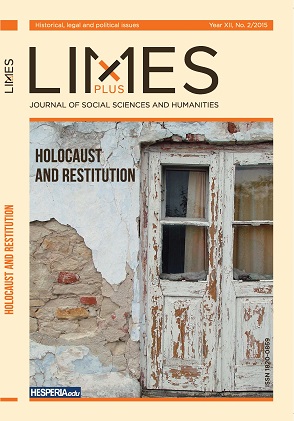Several Ideas on Holocaust and Restitution in Historical Overview
Several Ideas on Holocaust and Restitution in Historical Overview
Serbian Ethical and Property Dilemma and the Legacy of Anti-Semitism
Author(s): Nikola SamardžićSubject(s): Present Times (2010 - today), History of Communism, History of the Holocaust, Ethnic Minorities Studies
Published by: HESPERIAedu
Keywords: Restitution; Serbia; Jewish heirless property; Holocaust; Terezin Declaration
Summary/Abstract: The restitution process started in Eastern Europe only after the fall of the Berlin Wall and the collapse of the Soviet Union (1989–1991). While the Holocaust was the official policy of Nazi Germany from 1941, denials of the Holocaust were associated both with the radical, neo-fascist political right, and certain intellectual circles or individuals belonging to the radical left, generally associated with support or cooperation with communist Cold War regimes, or authoritarian regimes after the fall of communism. The ideological, and especially the revolutionary left was dividing the world into exploiters and exploited, questioning both the values and private property, and human suffering. Public debate on the draft law on the elimination of the consequences of seizing the assets of Holocaust victims and regulation of Jewish heirless property looted during the Holocaust began on December 18, 2015. It was anticipated that the Government of Republic of Serbia should launch a legislative initiative by the end of 2015. Already announced restitution model should be related to the Jewish national and religious communities network. The model applied in the Slovak Republic foresaw monetary compensation paid to the Union of Jewish Religious Communities as a consequence of negotiations between the government and the representatives of the Jewish community.
Journal: LIMESplus
- Issue Year: 2015
- Issue No: 2
- Page Range: 7-20
- Page Count: 14
- Language: English

